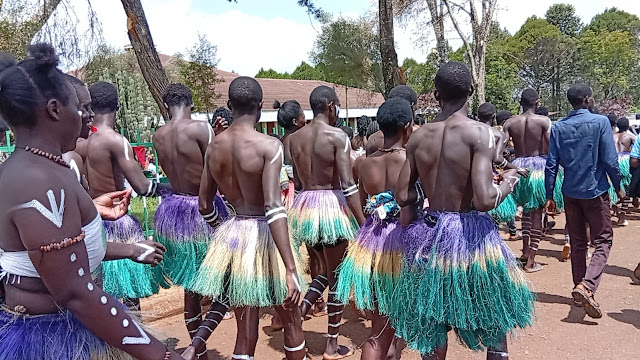 | |
|
But recently, something has changed. What used to be a celebration of culture now feels like a contest of tribes.
The 2025 edition was perhaps the clearest sign yet that we’ve strayed from the purpose. Instead of unity, the event almost sparked a full-blown tribal clash. I watched, in disbelief, as tensions flared between Luo, Kisii, and Maasai troupes after accusations of bias in the judging process.
Some troupes felt they were unfairly scored, with whispers of adjudicators favouring certain communities. You could almost cut the tension with a knife.
One moment really stuck with me. After the performances, a leaked score sheet showed that one troupe had been marked down for including both men and women in a dance that was traditionally done by men only. The reason? The judges said it wasn’t "authentic."
But the group was clearly upset, not just because they lost points, but because it felt like the judges were trying to tell them how to represent their own culture. It didn’t sit right with them. How can someone who’s not part of your community decide what's right or wrong about your traditions?
And beyond that, isn’t culture supposed to grow with time? If we still insist that only men can perform certain dances, aren’t we shutting women out of their own heritage?
Outside the main stage, most students didn’t seem to care much about what was going on. The music played, the dances went on, but for many, it all felt distant.
Out of curiosity, I asked a friend why he took part in the event. His answer caught me off guard.
He told me, laughing, that it was really just about beating other tribes and maybe winning a goat or sheep at the end. He was half-joking, but there was some truth in it.
If Cultural Week has become more about outshining other communities and chasing after prizes, then we have to ask ourselves, what are we really celebrating?
Somewhere along the way, the true meaning of Cultural Week got lost. It’s no longer about celebrating where we come from, it’s about showing off. People seem more focused on winning and getting recognition than on thinking about what their traditions actually mean today.
The performances that once told powerful stories about our roots now feel more like competitions for bragging rights. Even the dances look less like expressions of culture and more like contests for attention.
 |
| A packed Moi University Students' Centre hall during the 2025 Cultural Week. Photo: Mboto Harry Ivan. |
If Moi University truly wants to revive the Cultural Week, it has to be brave enough to reimagine it.
To start with, the cash prizes need to go. Culture shouldn’t be treated like a competition, it should be a chance to connect and share. Instead of handing out envelopes to a few winners, let the university support all groups fairly based on things like how big the troupe is, how much effort they put in, and what it cost them to prepare. The real reward should be the experience itself, not the money.
Then, let’s bring in strong, meaningful themes that actually make people think. One year could explore how women were represented in the past compared to today. Another could look at how tradition is changing in a digital world, or how different communities have learned to live together through shared stories. When the theme changes each year, it pushes troupes to create something new, not just repeat the same presentations year in year out.
But most importantly, we need to stop turning culture into a battleground. It’s not about proving who has the richest customs or the best dancers. It’s about listening, learning, and appreciating each other. Culture isn’t a weapon to use against others, it’s a shared language we all speak in our own way. Moi University has a responsibility to protect that language, not turn it into a source of division.
It’s time to bring Cultural Week back to what it was meant to be, not a fight to win, but a space to understand, to celebrate, and to grow together.
